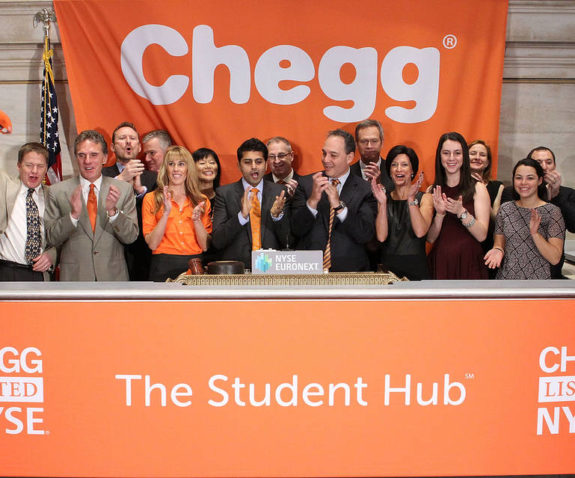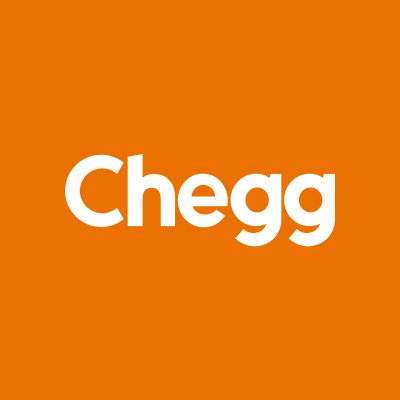In a stunning fall from grace, Chegg Inc., once hailed as America’s most valuable edtech company, appears to be on its last legs. As of February 24, 2025, the Santa Clara-based firm that revolutionized homework help and textbook rentals has been gutted by the rise of artificial intelligence—most notably, OpenAI’s ChatGPT. CGN Network digs into the demise of Chegg, a cautionary tale of innovation outpacing adaptation, and a win for free-market forces exposing bloated business models.
A Meteoric Rise… and a Cataclysmic Fall
Chegg’s story started with promise. Founded in 2005 by Iowa State students, it pivoted from a Craigslist-style board to a textbook rental juggernaut by 2007, then morphed into a digital learning titan under CEO Dan Rosensweig in 2010. By 2021, Forbes crowned it the edtech king, boasting a $12 billion market cap and 3.7 million subscribers riding the pandemic’s remote-learning wave. Students flocked to “chegging”—using its database of 46 million pre-written answers for homework and quizzes—turning it into a verb and a lifeline.
Then came ChatGPT. Launched in November 2022, OpenAI’s AI chatbot didn’t just compete with Chegg—it obliterated its core value proposition. Why pay $19.95 a month for Chegg Study when ChatGPT could spit out answers instantly, for free? By November 2024, Chegg’s stock had plummeted 99% from its 2021 peak, wiping out $14.5 billion in value. Subscribers dwindled by over half a million, and the company’s latest earnings call on November 12 revealed a grim reality: a 21% workforce cut—441 jobs gone—as AI “headwinds” battered its bottom line.
ChatGPT: The Grim Reaper of EdTech
The numbers tell the tale. Chegg’s fiscal 2024 saw a 2% drop in global same-store sales, but the U.S. hemorrhaged 6% in traffic, per Yahoo Finance. A Needham survey last fall found 62% of college students planned to use ChatGPT, up from 43%, while Chegg’s share slid from 38% to 30%. “It’s free, it’s instant,” MBA student Jonah Tang told The Wall Street Journal, summing up why students ditched Chegg en masse. University of Illinois professor Craig Zilles noted a “complete shift” to ChatGPT-generated solutions, leaving Chegg’s pre-written database in the dust.
Rosensweig saw the AI threat coming. In May 2023, he flagged ChatGPT on an earnings call, and the next day, Chegg’s stock cratered 48%. Desperate, the company rolled out “CheggMate,” a GPT-4-powered tool, hoping to claw back users. But it was too little, too late—still in beta by mid-2023, it never launched publicly, and by 2025, it’s a footnote. Chegg even pivoted to proprietary AI with Scale AI in August 2023, but it couldn’t match OpenAI’s head start or trillion-parameter might.

A Business Model Built on Sand
Here’s the kicker: Chegg’s demise was predictable. As Sherwood News put it, “Chegg’s death by GPT was one of the more predictable outcomes in public markets.” Its cash cow—pre-written answers from 70,000 Indian freelancers—was a sitting duck for AI disruption. Forbes nailed it in 2021: 42 of 52 students admitted using Chegg to cheat, not learn. When ChatGPT offered a faster, free cheat sheet, Chegg’s subscription model collapsed. Bond traders now doubt it can repay its debts, per The Indian Express, and layoffs—441 last summer, 21% more this month—scream a company in freefall.
Conservative Take: The Market Wins
For CGN’s audience, Chegg’s collapse is a triumph of innovation over complacency. Trump’s America First ethos celebrates disruptors like OpenAI, not bloated relics clinging to outdated models. Chegg thrived under a system where students paid for shortcuts—a crutch the free market’s now kicked out. Disney’s Snow White flop shows brands can’t force-feed fans; Chegg’s fate proves the same for edtech. AI’s rise isn’t a tragedy—it’s progress, exposing what doesn’t work and rewarding what does.
The Final Brew
Chegg isn’t technically dead—yet. Its June 2024 restructuring vowed a “student-first” pivot, blending AI with career skills, but the stock’s 99% plunge and subscriber bleed tell a different story. The Economist dubbed it “Death by LLM” in November, and they’re not wrong. ChatGPT didn’t just scramble Chegg—it buried it. As Rosensweig scrambles to salvage what’s left, one thing’s clear: the edtech giant that once ruled the classroom is now a ghost, a victim of its own hubris and AI’s relentless march. CGN Network will keep tabs on the carcass—because in this game, only the strong survive.
